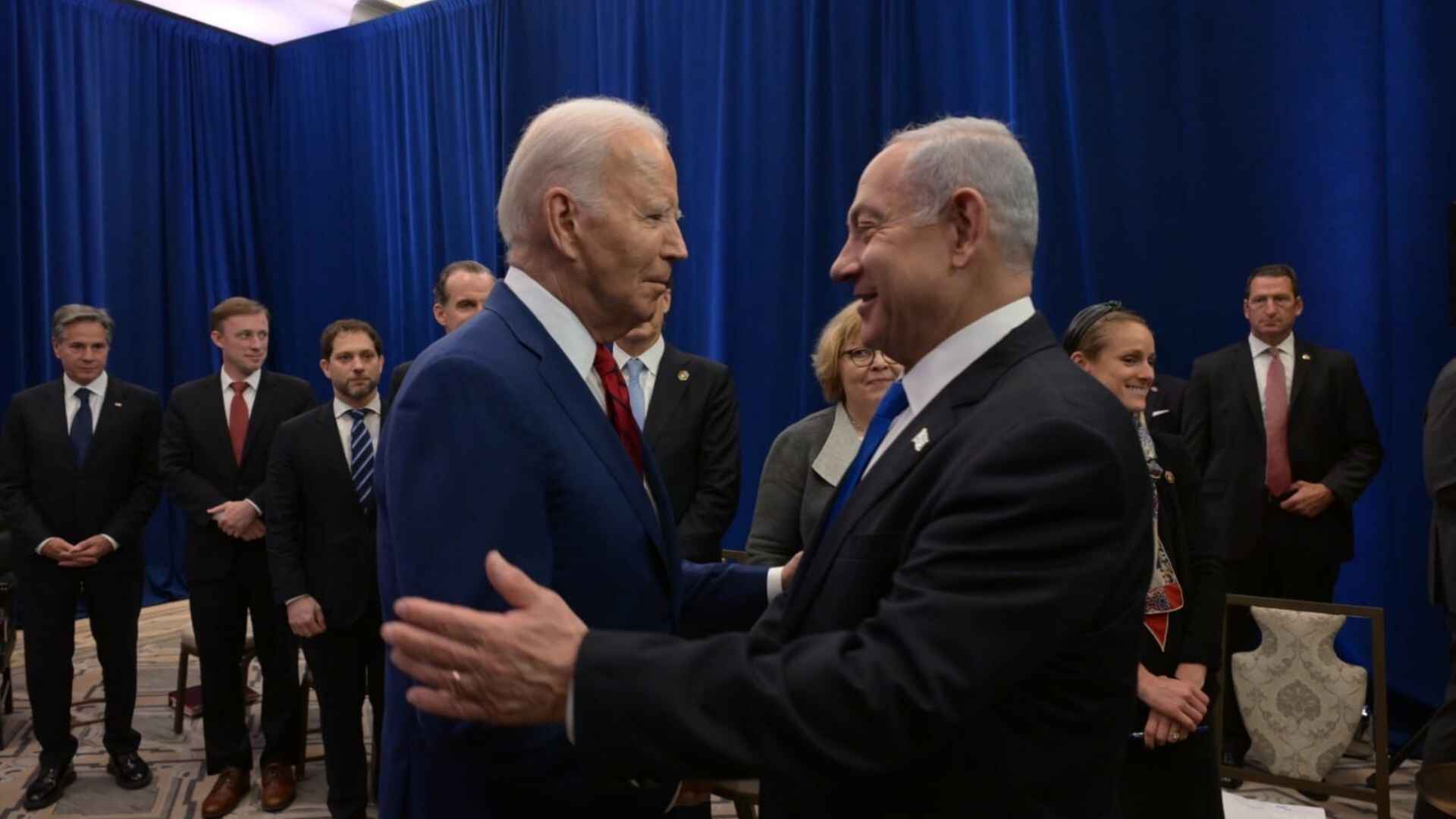
The Israeli government has reportedly assured the Biden administration that it will not target Iran’s nuclear or oil facilities in response to Tehran’s recent missile attack.
According to a Washington Post report citing two US officials, Prime Minister Benjamin Netanyahu has conveyed to Washington his readiness to strike military installations in Iran.
US officials indicated that Israel has pledged to concentrate its forthcoming strikes on military targets rather than on sites linked to Iran’s oil industry or uranium enrichment activities.
According to The Associated Press, the Biden administration believes that deploying a US Terminal High Altitude Area Defense (THAAD) battery to Israel, along with approximately 100 soldiers to operate it, has alleviated some of Israel’s concerns regarding potential Iranian retaliation and broader security issues.
Must Read: UNIFIL Under Fire: Israel’s Strikes And The Quest For Stability In Lebanon
On Sunday, the Pentagon announced the deployment of THAAD to bolster Israel’s air defenses in response to Iran’s ballistic missile attacks in April and October, a move authorized by President Joe Biden.
However, US officials, speaking on condition of anonymity, warned that this assurance is not guaranteed and could change. They highlighted Israel’s inconsistent track record in honoring past commitments, which are often swayed by domestic political considerations, as reported by The Associated Press.
A recent instance highlighted Israeli officials suggesting Prime Minister Netanyahu’s support for a US- and French-led ceasefire initiative for Lebanon, only for Israel to conduct a major airstrike that resulted in the death of Hezbollah chief Hassan Nasrallah just two days later.
“We consider US opinions, but our final decisions will be based on national interests,” Netanyahu’s office was quoted as saying by The Associated Press.
West Asia remains on high alert following Iran’s launch of approximately 180 ballistic missiles on October 1, which the US assisted in intercepting. The ongoing cycle of retaliatory strikes has heightened concerns about a potential escalation into a regional conflict, particularly with Israel contemplating strikes on Iran’s energy and nuclear facilities.
Israel’s military operations against Hamas in Gaza have now escalated into a ground invasion of Lebanon, targeting Hezbollah, another Iranian proxy that has been attacking Israel since the conflict began a year ago.
President Biden has advised against an Israeli retaliatory strike on Iran’s nuclear facilities and has urged caution regarding potential impacts on global oil prices, especially with the US presidential election approaching.
Biden and Netanyahu spoke by phone last week for the first time in seven weeks, while Defence Secretary Lloyd Austin has maintained regular communication with Israeli Defence Minister Yoav Gallant.
The Pentagon reaffirmed US support for Israel’s security but emphasized the need for protections for UN peacekeepers in southern Lebanon, a shift towards diplomatic solutions, and immediate actions to address the humanitarian crisis in Gaza. The White House declined to confirm whether Netanyahu provided any specific assurances regarding targets during their conversation.
“Our commitment to Israel’s defense is ironclad,” the White House National Security Council said in a statement. “We will not discuss private diplomatic discussions and would refer you to the Israeli government to speak to their own potential military operations.”
Also Read: Trump Leads Harris In Betting Markets – Can You Trust The Odds?















